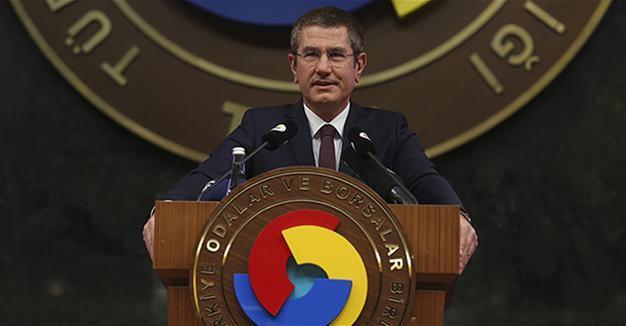List of sacked academics to be re-evaluated: Deputy PM
Nuray Babacan – ANKARA

AA photo
A list of 330 academics who were sacked from their positions at Turkish universities will be re-evaluated by the Higher Education Board (YÖK) in the face of mounting reactions, including those coming from ruling Justice and Development Party (AKP) members, Turkish Deputy Prime Minister Nurettin Canikli said Feb. 9.
The issue was broached during the party’s group board meeting by a number of AKP members who argued that some of the academics had nothing to do with terror organizations and that they had worked with some on the list upon directives from President Recep Tayyip Erdoğan.
The members said the act was “a reverse operation against the AKP.”
“This is against the AKP’s sociology. What we said that we were subject to in the past is now being done to others,” said one member, adding that they called the head of YÖK regarding the dismissals but could not receive a response.
Upon the reactions, Canikli said the list was prepared by YÖK but that they had experienced certain problems while preparing the list that officials were now attempting to rectify. He added the criticisms would be considered and that the list would be taken to YÖK for re-evaluation.
In the face of the mounting reactions, YÖK on Feb. 10 released a statement saying that an appeals commission that was established by the government to address complaints by individuals who were sacked or probed with a state of emergency decree, can apply, would do its work within the rule of law.
The main opposition Republican People’s Party (CHP) also reacted against the dismissals. Convening for a Central Executive Board (MYK) meeting of the party on Feb. 9, CHP members agreed to direct special focus on the dismissed academics, daily Habertürk reported.
The party will initially attempt to ensure that the people return to their positions; otherwise, it will search for ways to employ the scholars, including as advisers to the CHP. It will also try to establish independent academies, think tanks and research organizations to provide employment for the academics.
“In no democratic country in the world has such a total punishment took place,” CHP leader Kemal Kılıçdaroğlu said. “We always defend the autonomy of universities and support scientists to produce science freely. If you dismiss academics like this, you ruin scientific autonomy and the production of science.”
Former Turkish President Abdullah Gül also expressed his opinion on Feb. 10 about the recent dismissals, describing the “frequency” of these incidents as “very annoying and heartbreaking.”
“I hope it will be fixed rapidly,” said Gül.
Meanwhile, Turkish education union Eğitim-Sen issued a statement on Feb. 9 saying that 72 of their dismissed members at Ankara University would not leave their offices and campuses.
The statement added that with the decree law that was issued by the government, some faculties at the university were now unable to provide education and students’ right to education had been violated.
To show their reaction to the dismissals of academics, crowds on Feb. 10 gathered in Ankara but were subjected to police violence.
Police tightened security measurements after students announced plans for protests in and near the campus on Feb. 10. Students who sought to enter campus, were only allowed to do so after being subjected to ID checks. Some students and academics were reportedly refused entry to the campus.
With the tension rising, a brawl began after main opposition Republican People’s Party (CHP) lawmakers were prevented from entering to support the protest.
CHP deputies attempted to reach the rector or officials from the university as they waited at the gate after being prevented from entering by police.
A scuffle ensued between CHP lawmakers and police officers as police attempted to disperse demonstrators.
Riot police attacked students and academics with tear gas and plastic bullets, detaining three students and two academics.
